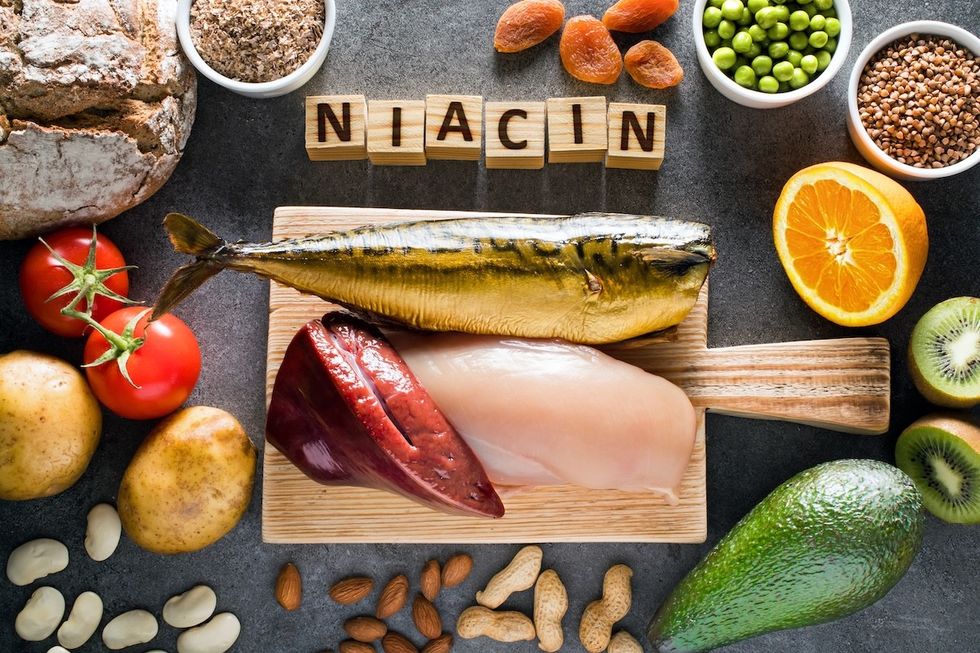Suzie Fletcher Wikipedia, Age, Photos, Weight Loss, Young, Net Worth
How Rich Is Eugene Levy? Net Worth, Career, Salary
Pat Ugwu Biography: Obituary, Age, Net Worth, Siblings, Parents, Height, Movies, Boyfriend

Patience Patrick Ugwu, popularly known as Pat Ugwu, was a Nigerian actress, model, and fitness coach. She gained recognition for…
Read More: Pat Ugwu Biography: Obituary, Age, Net Worth, Siblings, Parents, Height, Movies, Boyfriend
Columbus Irisoanga Biography: Awards, Movies, Obituary, Age, Net Worth, Siblings, Parents, Height

Columbus Irisoanga, popularly known as ‘Igbudu,’ was a seasoned Nollywood actor. He served as a senior lecturer in the Department…
Read More: Columbus Irisoanga Biography: Awards, Movies, Obituary, Age, Net Worth, Siblings, Parents, Height
Eating More of This Vitamin Could Protect Against Kidney Stones, Scientists Say

The National Kidney Foundation estimates that one in ten Americans will have a kidney stone at some point in their lives. These hard crystals develop in the kidneys and can be as small as a grain of sand or, albeit rarely, as large as a golf ball, explains Cleveland Clinic. Small stones will often pass through your urinary tract and come out when you urinate, which can still be painful. Larger stones, however, may get trapped in your ureter, leading to a host of symptoms, including lower back pain, blood in the urine, inability to urinate, painful urination, nausea or vomiting, and fever or chills.
Various lifestyle factors, such as dehydration, obesity, or a diet high in salt or sugar, can cause kidney stones. But you may also be at a higher risk due to family history, past surgeries (especially weight-loss surgeries), or certain medical conditions. And while you can't control these risk factors, you can take steps to safeguard yourself—and a new study suggests that eating more of a certain vitamin could protect against kidney stones.
RELATED: 5 Supplements That Can Damage Your Kidneys, Doctors Say.
Niacin may lower your risk of kidney stones by 22 percent.
A new study published in Scientific Reports examined the association of dietary niacin intake with the prevalence of kidney stones in U.S. adults. The researchers analyzed the health data and eating history of 28,508 participants from 2007 to 2018 to arrive at their findings.
They concluded that higher niacin (also known as vitamin B3) intake was associated with a 22 percent reduced risk of developing kidney stones.
Why this vitamin? Though the study didn't determine an exact reason, the researchers point out that many kidney stones are made of calcium oxalate, which may form due to oxidative stress and inflammation. Niacin, however, has antioxidant effects that counteract oxidative stress, "thereby reducing inflammation and tissue damage," they hypothesize.
To this point, the study found that niacin's positive effects were most prevalent in individuals under age 60. "We speculated that the immune system activity and inflammatory pathways may play a more prominent role in kidney stone development in younger individuals compared to older adults," states the study.
RELATED: 5 Things Your Kidneys Will Thank You for Doing, Doctors Say.
How can you incorporate more niacin into your diet?
 Shutterstock
Shutterstock
As the study states, the U.S. Institute of Medicine recommends that adult males have a daily niacin intake of 16 mg, while females have 14 mg. The "tolerable upper limit" is 35 mg per day.
In terms of the research, the results showed an L-shaped pattern, meaning that even a modest intake of niacin positively affects kidney stone risk.
According to the National Institutes of Health (NIH), some of the foods highest in niacin are:
- Beef liver
- Chicken and turkey breast
- Marinara sauce
- Sockeye salmon
- Canned tuna
- Pork tenderloin
- Lean ground beef
- Brown rice
- Peanuts
- Fortified breakfast cereals
RELATED: Doctor Reveals the No. 1 Supplement to Take If You're Getting Older.
Niacin offers other health benefits, too.
It's not just kidney health that niacin is linked to: The vitamin is also one of the best if you have high cholesterol.
As Best Life previously shared, niacin at high levels has been shown to lower LDL (bad) cholesterol while increasing HDL (good) cholesterol because it boosts the metabolism, helping to convert food to energy.
"In addition to LDL, niacin also lowers the levels of triglycerides, another harmful blood lipid," HaVy Ngo-Hamilton, PharmD, a pharmacist and clinical consultant at BuzzRx, told us. "Niacin reduces LDL and triglyceride levels by blocking the essential enzyme for cholesterol production in the liver."
Additionally, Mount Sinai says that "niacin helps improve circulation, and it has been shown to suppress inflammation."
The takeaway:
A new study suggests that eating more foods high in the vitamin niacin could lower your risk of developing kidney stones by 22 percent.
However, since this was a cross-sectional study (meaning it observed data at a single point in time rather than over a period of time), an exact cause-and-effect relationship can not be determined. It also involved self-reported data. Therefore, the researchers say that "further well-designed prospective cohort studies are required to verify these findings and elucidate the underlying mechanisms."
If you want to add more niacin to your diet, first speak with your healthcare provider.
Test your vision: Only a person who have perfect eyesight can guess the number correctly
Hilda Dokubo Biography: Books, Age, Net Worth, Siblings, Parents, Height, Political Party, Children, Movies, Husband, Awards

Hilda Dokubo is a highly accomplished Nigerian actress celebrated for her outstanding contributions to the film industry. She is also…
Charles Koch Biography: Children, Wife, Age, Net Worth, Siblings, Parents, Height

Charles de Ganahl Koch, famously known as Charles Koch, is an American billionaire businessman who has served as the co-owner,…
Read More: Charles Koch Biography: Children, Wife, Age, Net Worth, Siblings, Parents, Height
